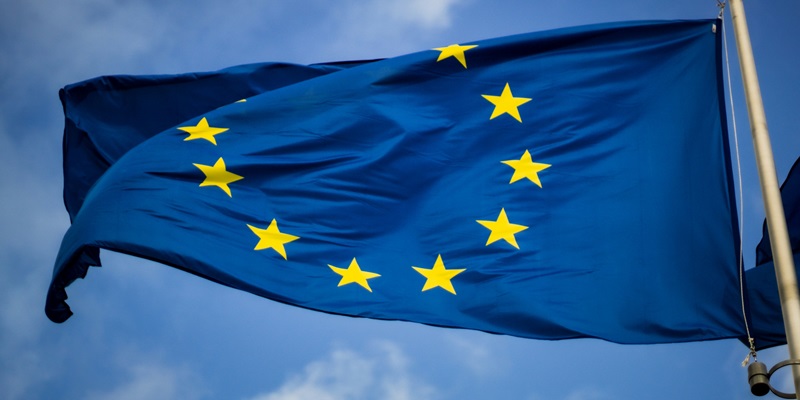Apple’s recent announcement that it is now allowing app sideloading in the EU through the beta version of iOS 17.4 has sparked discussions about the company’s control over iOS apps and the implications for privacy and security. This move, prompted by the introduction of the Digital Markets Act (DMA) in the EU, aims to level the playing field in the technology market and address concerns about the dominance of large tech companies. While Apple is introducing app sideloading, it also seeks to maintain a level of control through notarization and enhanced security measures. This article explores the details of Apple’s decision and the potential impact on the EU app market.
Concerns over Loss of Control
Apple’s decision to allow app sideloading in the EU raises concerns for the company regarding the loss of control over iOS apps. Apple has expressed its unease, stating that sideloading creates privacy and security risks for users. By allowing users to install applications from sources other than the official app store, Apple relinquishes a level of control it has meticulously maintained over the iOS ecosystem.
Notarization Requirement
While app sideloading is being permitted, Apple is enforcing a notarization requirement for all iOS apps. Notarization ensures that apps meet Apple’s security standards before they can be installed on devices. By requiring notarization, Apple aims to maintain a certain level of oversight on the apps being sideloaded, mitigating the potential risks associated with unauthorized sources.
Enhanced Security Measures
To further address security concerns, Apple is introducing additional requirements for developers. As part of the app installation process, developers must complete detailed app installation sheets and give authorization, affirming their commitment to Apple’s security requirements. Additionally, Apple is implementing malware protections that prevent sideloaded apps from launching if they contain malware. These measures offer an added layer of protection for users, ensuring that potentially harmful apps are detected and prevented from compromising device security.
Encouragement to Use App Store
Despite allowing app sideloading, Apple is urging developers to continue distributing their apps through its App Store rather than alternative methods. The company emphasizes the advantages of the App Store, such as a curated and secure environment for users and developers, as well as the benefits of leveraging Apple’s well-established platform for app discovery and distribution. By encouraging the use of the App Store, Apple aims to maintain its dominance while also ensuring the highest level of user experience and security.
Understanding App Sideloading
App sideloading refers to the process of installing applications obtained from sources other than the official app store of an operating system. This allows users to access a diverse range of apps that may not be available on the official store due to restrictions or policy limitations. Sideloading offers users the ability to customize their devices and explore alternative app ecosystems beyond what is offered by the official platform.
The EU’s Regulatory Framework
The EU’s DMA is a regulatory framework aimed at leveling the competition in the technology market. It sets out a list of regulations to ensure that large tech companies, referred to as “gatekeepers,” engage in fair practices. By enabling app sideloading, Apple aims to align with the DMA’s objectives while retaining a significant degree of control over its operating system, which sets it apart from its biggest competitor, Google.
Apple’s Balancing Act
Apple’s decision to allow app sideloading in compliance with the DMCA reflects a balance between adhering to regulatory requirements and maintaining its unique control over the iOS ecosystem. While other companies may offer greater flexibility in terms of sideloading, Apple is striving to strike a delicate balance that ensures user privacy and security while still delivering a seamless and curated app experience.
In conjunction with the introduction of app sideloading, Apple is also rewriting the business terms for iOS apps in the EU. Notably, the company is reducing its commission percentage for App Store purchases from 30% to 10%, with a slight variation of 17% for digital goods and services. This change aims to address concerns raised by developers and regulators regarding Apple’s App Store fees, creating a more favorable environment for app creators and fostering healthy competition.
Rollout and Release
The changes announced by Apple will roll out to all users in the 27 EU countries in March, coinciding with the general release of iOS 17.4. This phased approach will allow Apple to address any potential challenges or issues that may arise during the beta phase, ensuring a smooth transition for users and developers alike.
Apple’s decision to allow app sideloading in the EU reflects the company’s efforts to meet regulatory requirements while maintaining control over the iOS ecosystem. By implementing notarization and enhanced security measures, Apple aims to address privacy and security concerns associated with sideloading. However, the company still encourages developers to distribute their apps through its App Store, highlighting its advantages in terms of security, user experience, and discoverability. With changes to business terms, including reduced commission fees, Apple aims to foster a more competitive environment while continuing to provide a curated and reliable app ecosystem for EU users. The impact of these changes in the EU app market remains to be seen, but they undoubtedly mark a significant shift in Apple’s approach to app distribution and control.

